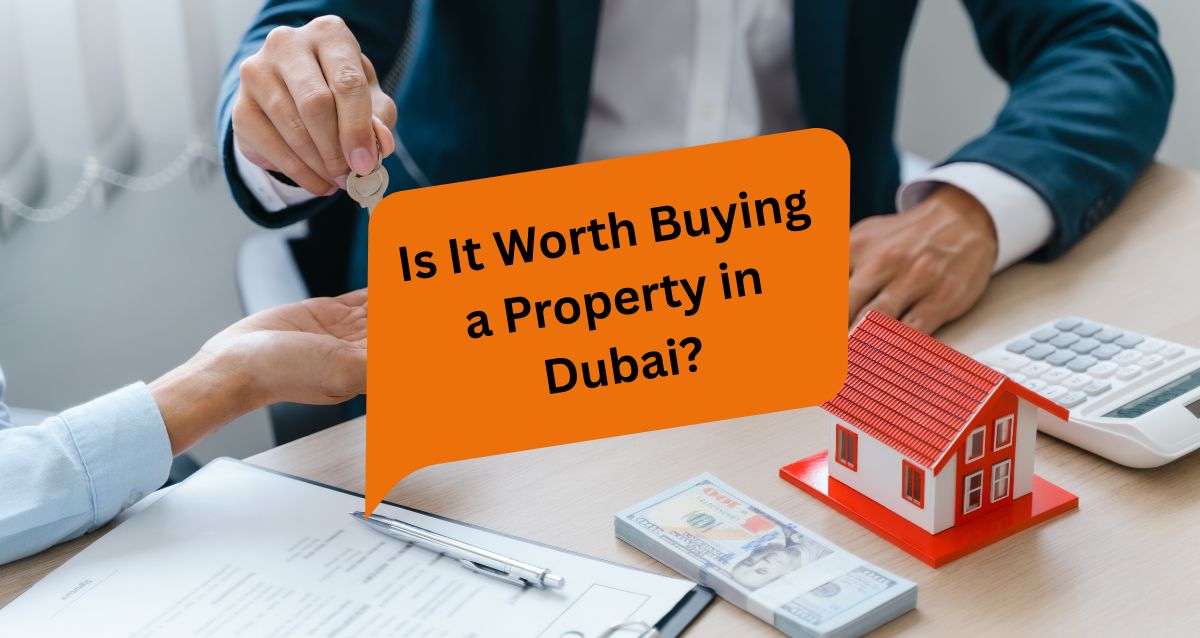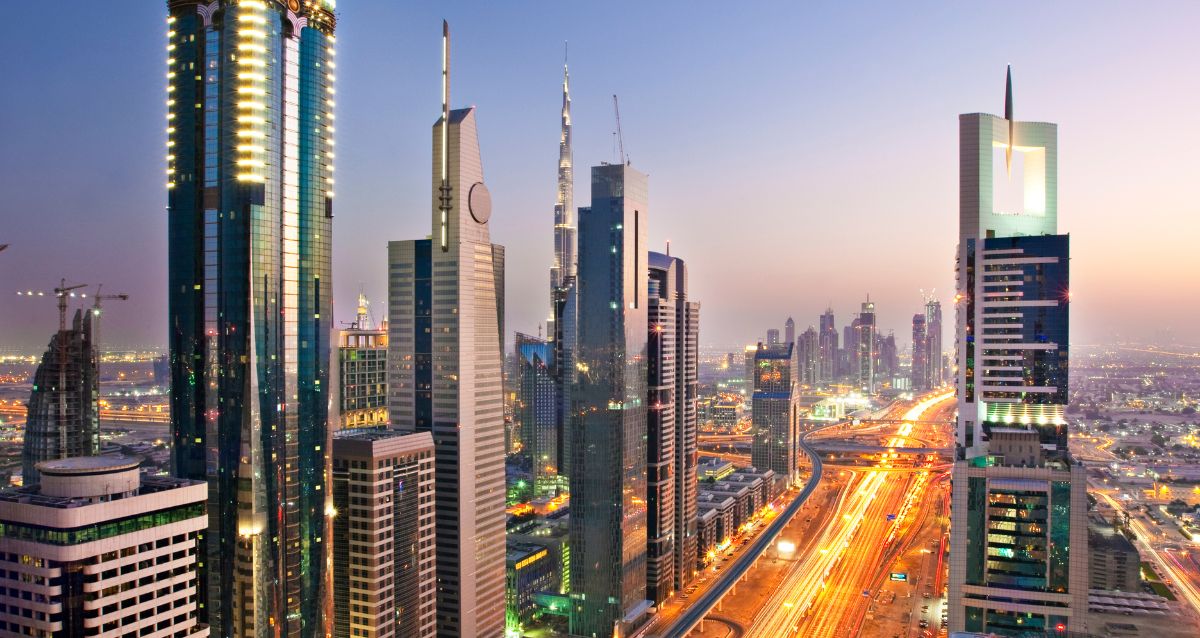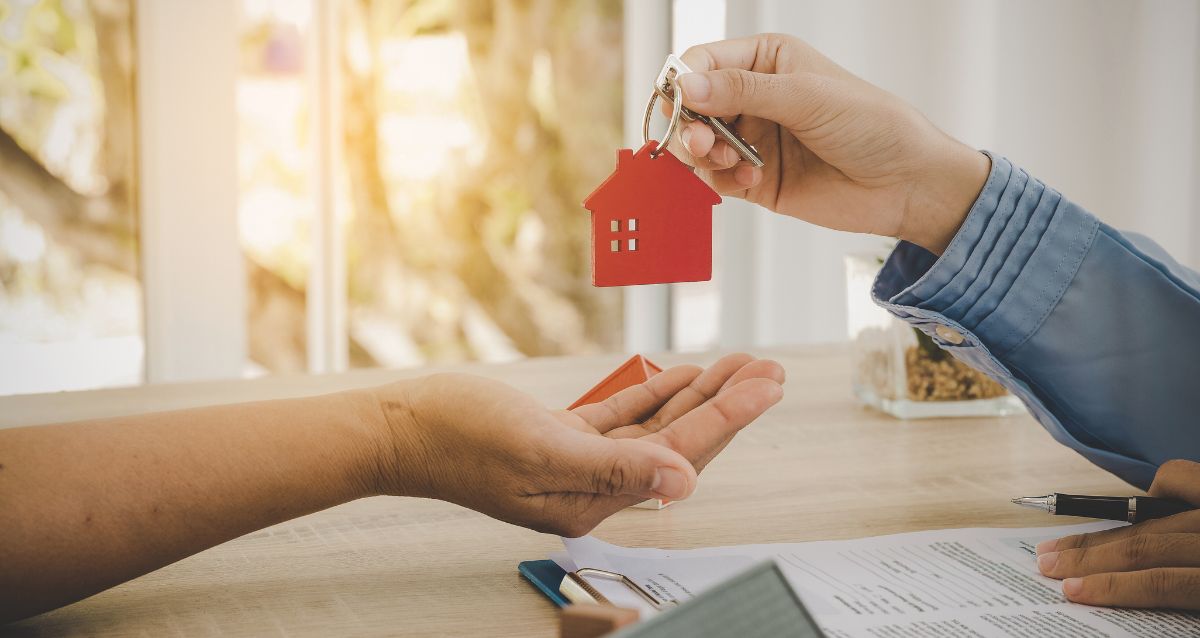Is It Worth Buying a Property in Dubai? A Complete Guide for Expat Investors

Is It Worth Buying a Property in Dubai?
Dubai has a way of catching you off guard. You can be walking along Dubai Marina, watching the sun bounce off the yachts, hearing the faint chatter from the nearby cafes, and suddenly realize you could live here. Not just visit, but truly settle. For many expats, that thought is irresistible. But then comes the real question: is it worth buying a property in Dubai?
Honestly Yes, And it’s not just because of the towering skyscrapers or the luxurious malls. Dubai combines lifestyle, financial opportunity, and growth potential in a way that few cities can.
Imagine stepping into your new apartment in Dubai. Floor-to-ceiling windows frame the city skyline, lights twinkling as the evening sets in. On your balcony, the faint sound of traffic mixes with distant music from a nearby cafe. Maybe you’re sipping coffee or just pausing for a moment. This isn’t just a view it's an investment that makes your everyday life extraordinary.
For expat investors, that’s the magic of Dubai. You’re not just buying property you’re buying into a way of life. And a way of life that people are willing to pay top dollar to experience, which makes for solid rental income.
Why Dubai Feels Different
Dubai isn’t like any other city. You could be in the heart of Dubai, surrounded by skyscrapers, or in some areas, where villas dot the shoreline, private beaches stretch before you, and the pace slows down. Each area offers something unique, and each has its own type of tenant waiting for you.
Take Jumeirah Lakes Towers, for example. Young professionals love the proximity to offices, cafes, and nightlife. They want efficiency, comfort, and connectivity. Then there’s Palm Jumeirah, where families look for space, privacy and long-term stability. Investing here isn’t just about buying a building it's about giving someone a home, and that stability translates into reliable rental income.
High Rental Yields
One thing that makes Dubai especially attractive is the rental yield. Some apartments in Dubai can offer 5–9% returns annually. Villas in prime areas often yield even more, especially when tenants are willing to pay a premium for location and amenities.
It’s simple: people want to live in Dubai, and they’re ready to pay for quality. For investors, that’s a golden opportunity.
Tax-Free Advantage
Another major benefit for expats: no taxes on rental income or capital gains. Keep every dirham you earn. Unlike many countries where your profits are eaten away by yearly taxes, Dubai lets you enjoy the full return of your investment.
Sure, there’s a small registration fee, but in the grand scheme, it’s negligible compared to what you save in taxes. That simplicity is rare and makes Dubai real estate for expats even more appealing.
Dubai’s Economy and Growth
Dubai has grown beyond oil. Tourism, finance, logistics, and technology now drive the economy. That diversification creates stability, which means real estate here isn’t just flashy, it's sound.
The city is constantly building and improving. New metro lines, hospitals, schools, and leisure hubs make neighborhoods more appealing, which in turn increases property values. And government plans like the Dubai 2040 Urban Master Plan are designed for sustainable and smart city growth. For investors, that’s confidence you can feel in your gut.
The Golden Visa
Here’s something many expats find irresistible: the Golden Visa. Invest in real estate worth AED 2 million or more, and you, along with your family, can enjoy a 10-year renewable residency.
Picture a family moving into Dubai. They can work, study, and live without worrying about visa renewals. That stability isn’t just convenient, it adds long-term value to the property. It’s like buying peace of mind alongside a home.
Living the Dubai Lifestyle
Investing in Dubai is also about enjoying the city. Imagine weekend walks along the street , coffee in hand, or evenings watching the sun set over the Gulf. Properties offer high-end amenities like sky lounges, private cinemas, gyms, and pools that make life feel like a vacation every day.
Tenants love these features too. People pay more to enjoy experiences like this. So when you own a property in Dubai, you’re not just investing in concrete and steel you’re investing in lifestyle.
Picking the Right Property
Location is everything. There are areas in Dubai which are tried-and-true areas where demand remains strong. Emerging areas like Jumeirah Village Circle or Meydan City are also promising for long-term growth.
Some investors prefer off-plan properties, bought before construction is complete, which often offer lower upfront costs and potential appreciation once finished. Others prefer ready-to-move-in units for immediate rental income. Each approach has its benefits, and choosing depends on your personal goals.
Getting Professional Guidance

Navigating Dubai’s property market can feel tricky, especially for first-time buyers. That’s why working with a RERA-certified agent or experienced consultant is invaluable. They’ll help you understand property types, fees, and legal requirements.
Imagine trying to figure out local rules alone. It's overwhelming. But with the right guidance, the process feels natural and safe, almost like a friend walking you through each step.
Maximizing Returns
To maximize investment potential, look for properties with strong community features gyms, pools, parks, and shared spaces. Watch for upcoming infrastructure projects that might increase property value.
And don’t forget the human element. Tenants are drawn to properties where life feels good. Walking through your community, enjoying amenities, and having space to relax all contribute to long-term occupancy and higher rents.
The Personal Touch
Owning property in Dubai isn’t just numbers on a page. It’s waking up to views of the skyline, enjoying weekend beach trips, or taking evening walks through leafy boulevards. These experiences make the city desirable.
For expats, that’s the biggest draw. You’re not just buying a property; you’re buying into a way of life. The lifestyle itself becomes part of the investment, because people are willing to pay more to live well.
Final Thoughts
Dubai offers expats something few cities can: a combination of financial opportunity, lifestyle, and long-term stability. High rental yields, tax-free income, a growing economy, and benefits like the Golden Visa make it one of the most appealing destinations for property investors.
Whether it’s an apartment with sweeping city views or a villa the city provides a unique blend of investment and everyday enjoyment. It’s a place where the skyline inspires, the communities feel alive, and every property has the potential to be both a home and a solid investment.
If you’re considering buying property in Dubai in 2025, it’s not just about returns, it's about joining a city that blends ambition, luxury, and opportunity. For expats, the answer is clear: it’s worth it.
FAQs
1. Is it possible for expats to own property in Dubai?
Yes. Dubai allows 100% freehold ownership for expats in designated areas. This means you can fully own your apartment, villa, or townhouse and benefit from rental income and capital appreciation.
2. What kind of rental returns can investors expect in Dubai?
Rental yields in Dubai vary depending on property type and location. Apartments can offer 5–9% annual returns, while villas in prime areas may provide even higher yields due to demand for luxury and space.
3. Are there any taxes on property purchases or rental income for expats?
Dubai has a tax-free regime for both rental income and capital gains. Investors only pay a one-time registration fee, making it an attractive destination compared to countries with higher property taxes.
4. What is the Golden Visa, and how does it relate to property investment?
The Golden Visa is a long-term residency program. Expats investing AED 2 million or more in real estate can secure a 10-year renewable visa for themselves and their families, offering stability and added value to their property ownership.
5. Should I invest in off-plan properties or ready-to-move-in units?
Both options have benefits. Off-plan properties often have lower upfront costs and potential appreciation once completed. Ready-to-move-in units allow immediate rental income. The choice depends on your financial goals, risk tolerance, and investment horizon.
